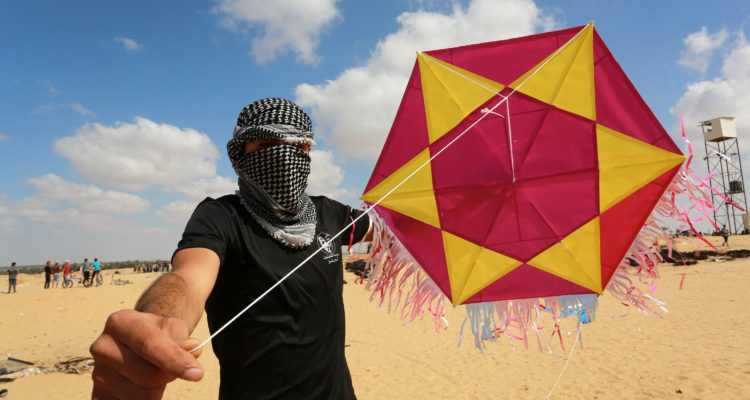After Palestinian arson terror forced the cancellation of a major hot-air balloon festival in Israel’s south, the government announced it would compensate event organizers for their losses.
By Batya Jerenberg, World Israel News
The government will spend NIS 700,000 to compensate the organizers of the International Balloon Festival, which was cancelled this past summer due to the perilous security situation created by Hamas arson terror, rioting, and rocket attacks, the Hebrew media reported Thursday.
The event, slated to take place in the Besor Park near Gaza, would have included over a dozen massive hot-air balloons in various shapes, colors and sizes, launched over the Western Negev. The event was intended to promote tourism to the southern part of Israel.
However, due to the danger posed by Hamas’ incendiary kites and balloons, as well as sporadic rocket attacks, the authorities couldn’t risk permitting thousands of families to descend upon the area for the event. Thus, the festival was cancelled.
Prime Minister Benjamin Netanyahu recently announced that the state will cover the cost of the festival, which has taken place for six years, to avoid forcing regional authorities to shoulder the cancellation’s financial burden.
Months after the festival was cancelled, Hamas continues its arson terror, with the government divided over how to react. A study publicized last week showed that Palestinian-launched incendiary devices have already burned half of the forested land near the southern border, along with thousands of acres of agricultural fields. Balloons with explosive devices have also landed in towns and villages, and only by miracle has no one been injured yet.
According to the monthly Peace Index survey of the Israel Democracy Institute and Tel Aviv University, released on Tuesday, a solid majority of Jewish Israelis believe that a stronger government reaction is necessary to stop Hamas arson attacks, infiltration attempts, and general border violence that has gone on since March. Over 56% believe that Defense Minister Avigdor Liberman’s policy on Gaza is too soft, while almost 60% are of the opinion that Israel should not provide relief measures to improve the lives of the Gaza residents.
Most of those polled (64%), however, are willing to settle for a long-term cease-fire agreement with Hamas under international supervision.
All recent attempts to forge a truce, through mediators such as the Egyptians and the United Nations, have so far come to naught.





